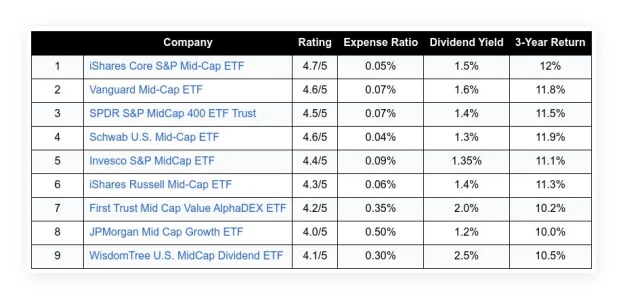Many men find that when retirement finally arrives, the dream of leisurely afternoons, hitting the golf course, and “finally doing nothing” doesn’t feel like freedom at all. Instead, the sudden halt from decades of work often triggers restlessness, a fading sense of identity, and an unsettling question: Now what?
Often, the answer isn’t less work; it’s different work. Men who continue to work after retirement, whether through part-time roles, consulting, volunteering, or passion projects, report higher levels of happiness and well-being, according to a growing body of research, including findings in the Journal of Happiness Studies.
Instead of signaling failure, a “working retirement” may be the key to an extended, healthier, and more fulfilling life. As they redefine work in retirement, men discover a richer kind of freedom that rewards structure, contribution, and meaning, rather than stepping away from their life’s purpose.
So, let’s dig into why a working retirement could be essential to thriving in later life.
Table of Contents
ToggleWhy Retirement Can Hit Men Harder Than Expected
For many men, work is more than just a paycheck. It’s the foundation of their identity. In addition to providing structure, purpose, and social interaction, a career also provides a steady stream of accomplishments. In retirement, the transition can seem less like freedom and more like a freefall.
Loss of identity and purpose.
- Work defines worth. Often, men’s perception of themselves is shaped by years of achievements, titles, and responsibilities. When men retire without that framework, they may experience an identity crisis, questioning their value.
- The vanishing provider role. Men are traditionally viewed as financial providers. In the absence of that role, some struggle to replace the sense of meaning that arose from contributing, and hobbies alone seldom fill the void.
Shrinking social circles.
- Workplace ties dissolve. In and around the office, many men form friendships. Men, unlike women, typically have fewer outside friendships to rely on after retirement, which can lead to loneliness and isolation.
- Barriers to new bonds. Forging new, deeper friendships can be complicated for men due to cultural norms that discourage vulnerability. In retirement, the “strong and silent” persona can often be detrimental to emotional connections.
Emotional and mental health challenges.
- Reluctance to seek help. Traditionally, men are taught to “tough it out.” As a result, they are less likely to talk about their struggles or seek support.
- Higher risk of depression. Men are particularly prone to depression in early retirement, according to studies. This is because a sudden loss of routine, purpose, and social interactions can lead to a decline in interest and mood changes.
- Adapting to open days. When a calendar is empty after decades of regimented schedules, the feeling can be overwhelming. Boredom and aimlessness quickly set in without a plan.
Relationship strains.
- Marital friction. Many retirees spend all day at home, every day. Old tensions might surface due to this shift, requiring couples to rebalance their relationship.
- Changing family roles. Over time, a retired man’s role within the family can become less clear, sometimes leading to feelings of insignificance.
Physical health impacts.
- Neglected health habits. As a result of retirement, men are less likely to seek preventive care. They often ignore health concerns because they believe they are self-reliant.
- Ignoring warning signs. When medical issues aren’t addressed, they may go untreated. In comparison with women, who are more proactive in seeking care, this leads to poorer outcomes.
It’s not surprising that many men who “retire” in the traditional sense are dissatisfied. However, working retirement can be a middle path, as it retains the benefits of engagement without all the strain of a regular job.
Redefining Retirement: Freedom, Not Finality
Rather than “ending work”, today’s retirement model focuses on financial freedom and lifestyle choices. Instead of stopping work altogether, the goal is to work differently.
From this perspective, retirement isn’t about sitting around doing nothing. In other words, it’s about achieving a balance: the financial stability to stop working if you choose, but the flexibility to continue contributing, earning, and growing if you prefer. Often, this redefinition liberates men.
The Psychological Benefits of a Working Retirement
In a working retirement, the retiree continues to work part-time or on a flexible schedule while officially retired. Additionally, it offers the following psychological benefits;
A sense of purpose.
Even small tasks, goals, and responsibilities give meaning to life. Men who work in retirement often report greater levels of satisfaction and well-being.
Routine and structure.
Having a daily rhythm helps anchor mental health. Whether it’s working a few shifts every week or consulting from home, having a schedule prevents retirement drift.
Social connection.
Even part-time jobs provide opportunities for interaction and camaraderie. In later years, social engagement can combat isolation. As a matter of fact, according to a T. Rowe Price study, men were more likely to cite social connections as motivation to work.
Confidence and identity.
Having a job reinforces a sense of usefulness and relevance. Rather than “fading away,” men who keep working often feel they’re still contributing to society.
The Financial Upside
Work in retirement isn’t just about purpose; it’s also about money. Even if you’ve saved well, extra income can have real benefits, such as;
- Delays drawing on savings. If you have extra income, you can let your investments grow for a longer period of time. This is also true with Social Security benefits. Delaying your Social Security benefits after you reach full retirement age (FRA) (66-67) up to age 70 increases them by 8% each year.
- Improves lifestyle flexibility. Taking on new hobbies, traveling with grandkids, or spoiling grandkids sounds wonderful, doesn’t it? Having supplemental income makes it easier.
- Eases inflation pressure. In times of rising healthcare and living expenses, earnings can provide peace of mind.
As a result of part-time employment, many men feel more confident about their long-term retirement security.
Types of Working Retirement Paths
The definition of a working retirement varies from person to person. However, the following are some of the most common models pursued by men:
Part-time work in your field.
Former executives can transition into consulting, or teachers to transition into tutoring. In addition to familiarity, staying in your area of expertise reduces your workload.
Passion projects turned into income.
Have you always enjoyed woodworking, photography, or writing? When you retire, you have more time for hobbies and side hustles.
Encore careers.
It’s not uncommon for men to choose to start entirely new careers that reflect their values, such as teaching, nonprofit work, or mentoring.
Gig or flexible work.
Freelancing, ride-sharing, or seasonal jobs give you the flexibility to earn money without being tied to a set schedule.
Volunteering.
Unpaid “work” can also provide psychological benefits. A mentorship program, community service, involvement on a board of directors, or volunteering at a pet shelter keep men engaged and connected
Health Benefits of Staying Engaged
It has consistently been shown that staying mentally and physically active in retirement has positive effects;
- Cognitive health. As a result of work, the brain is stimulated, which reduces dementia risks and cognitive decline.
- Physical health. In addition to active roles, the daily routine of leaving your home helps combat sedentary behavior.
- Emotional resilience. There is a higher level of happiness and lower levels of depression among retirees who are engaged.
It’s not just about extending your career in retirement — it’s about extending your quality of life.
Striking the Right Balance
Working retirement isn’t about replicating 60-hour workweeks. Instead, it’s about finding balance. There are a few ways to make it work;
- Set boundaries. Determine the number of hours per week that feel energizing instead of draining.
- Prioritize passion over pay. Don’t be afraid to pursue work that excites or contributes to others.
- Stay flexible. If you enjoy traveling, spending time with your family, or pursuing hobbies, select a role that allows you to do so.
- Redefine success. In retirement, work isn’t about climbing ladders. It’s about bringing joy, contribution, and personal fulfillment to your life.
Is Working Retirement Right for You?
Some men don’t want to or need to keep working. It’s perfectly valid for some people to step back completely. Knowing yourself is the key:
- Are routines and structure important to you?
- When you contribute and connect, do you feel energized?
- Are you restless when you are idle for long periods of time?
If the answer is yes, a working retirement may be your path to a happier, healthier life.
Final Thoughts
Rather than choosing between work and leisure, retirement for men involves blending both in meaningful ways. With a working retirement, you can enjoy freedom from financial pressure as well as the ongoing benefits of purpose, structure, and community.
The decision to keep working, even a little, may be the smartest thing you can do for long-term happiness.
Does a working retirement make men happier? For many, the answer is yes.
FAQs
Does working in retirement mean I failed financially?
Not at all. For many men, working in retirement is not a necessity, but a choice. It’s about staying engaged, having a purpose, and earning extra money. In addition to making them happier and healthier, even financially secure retirees often choose to work.
What kinds of jobs are best for a working retirement?
You should choose a job that matches both your interests and level of flexibility. Consulting, teaching, freelancing, volunteering, and converting a hobby into income are some of the options available to you. A good choice is energizing instead of stressful.
How many hours a week should I plan to work in retirement?
You should consider your health, finances, and preferences before making a decision. In retirement, most retirees thrive with 10–20 hours a week of structure that doesn’t overwhelm them. Others prefer seasonal work or short-term projects that allow them to travel and relax.
Can working in retirement affect my Social Security benefits?
In some cases, your Social Security benefits may be temporarily reduced if you claim before full retirement age. When you reach full retirement age, you no longer need to worry about Social Security payments being affected by your earnings.
How do I decide if a working retirement is right for me?
Do you enjoy the idea of contributing to the community? Is too much downtime making you restless? Would you like to boost your financial cushion or maintain a sense of purpose? Trying out part-time or project-based work might be a great option for you if you answered yes.
Image Credit: Andrea Piacquadio; Pexels

















